Uncategorized
MUN Students Completes STCW Training at MAN Oron
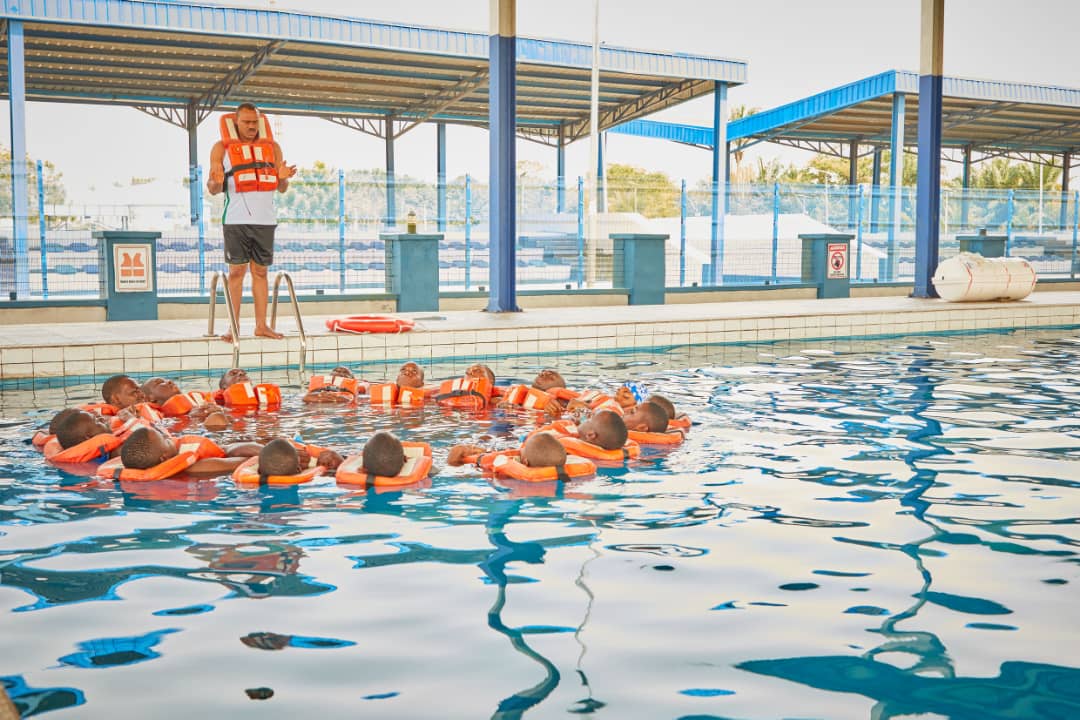
BY FUNMI ALUKO
The third batch of students of the Maritime University of Nigeria (MUN) Okerenkoko, who embarked on a mandatory short courses at the at Maritime Academy of Nigeria (MAN) Oron has completed their training.
The MUN students, who chose the Academy to do their Standard of Training Certification and Watchkeeping (STCW) compliant training, successfully rounded off on February 20, 2023, according to usually reliable sources close the Academy’s rectorate. The conclusion of this training is yet again, an eloquent testimonial and part of the success story of the Academy’s transformational development since 2017.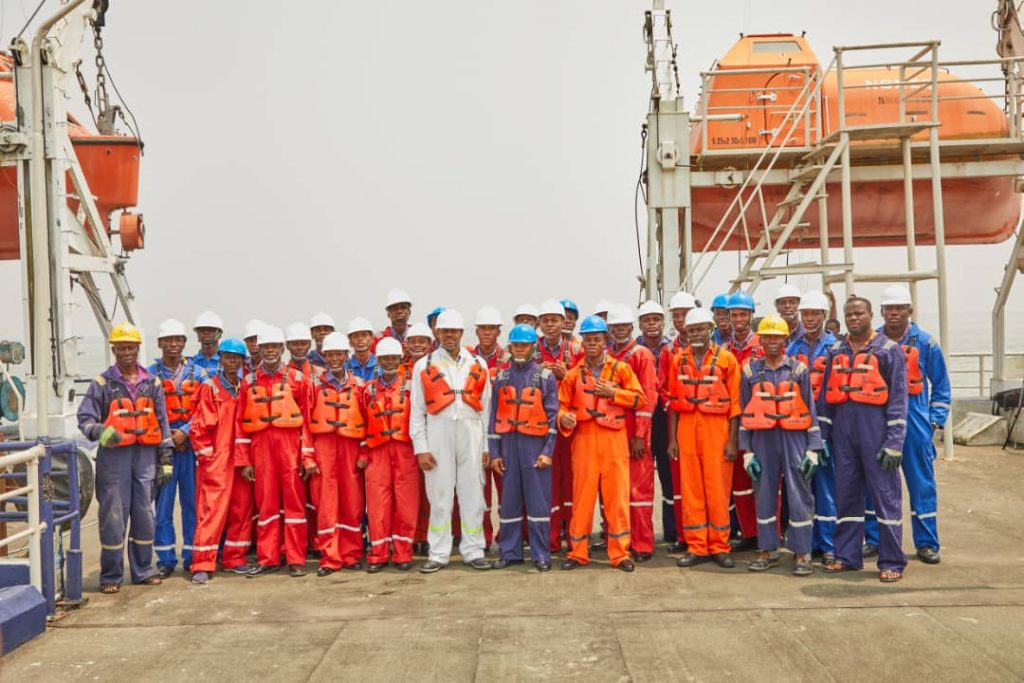
It will be recalled that management of MUN Okerenkoko in Delta State, last year entered into technical partnership with the Academy for its students to undergo mandatory short courses, in the light of the phenomenal capacity growth of MAN to provide wide range training to cadets and students of maritime training institutions.
This training therefore is a fallout of collaboration between the two institutions, in which MUN has enjoyed the Academy’s training on mandatory short courses leading to Standard of Training Certification and Watchkeeping (STCW) , in compliance with global maritime standards.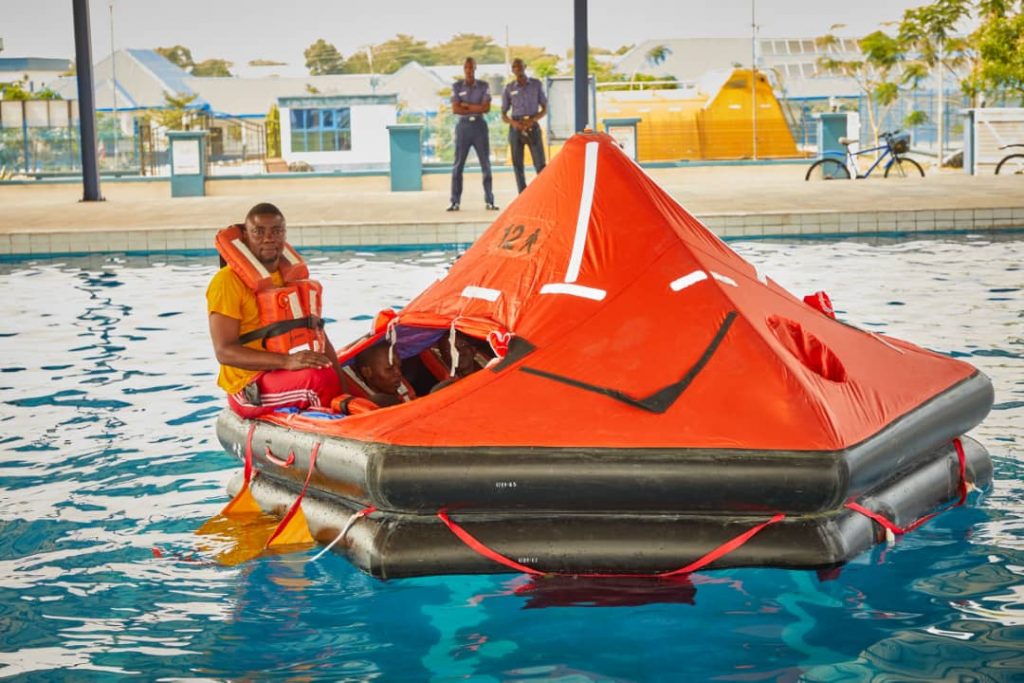
The Maritime Academy located in Oron, Akwa Ibom Sate which has an international learning ambience has been adjudged by many experts as one of Africa’s fastest growing training institution and the most fitted in terms of modern training facilities, for students and trainees in West and Central Africa.
Recall that recently, Rector of the Academy, Commodore Duja Emmanuel Effedua (Rtd) paid glowing tributes to the Federal Ministry of Transportation (FMOT) and the Nigerian Maritime Administration and Safety Agency (NIMASA) for their supports toward the transformation of MAN to a world-class maritime education and training institution.
Commodore Duja who expressed his appreciation Thursday, 19th January, 2023 during the presentation of certificates to the first batch of trainees in the Engine Room Simulator (Operational Level) Course, following the cadets successful completion of training at the Academy.
He explained that the journey to bring the Academy at par with its counterparts in the global maritime scene began in 2018 with the commencement of the procurement of top-notch training facilities in addition to their installations, noting that the Ministry has been solidly behind his administration’s quest to ensure full realisation of the transformation as specified by the International Maritime Organisation (IMO).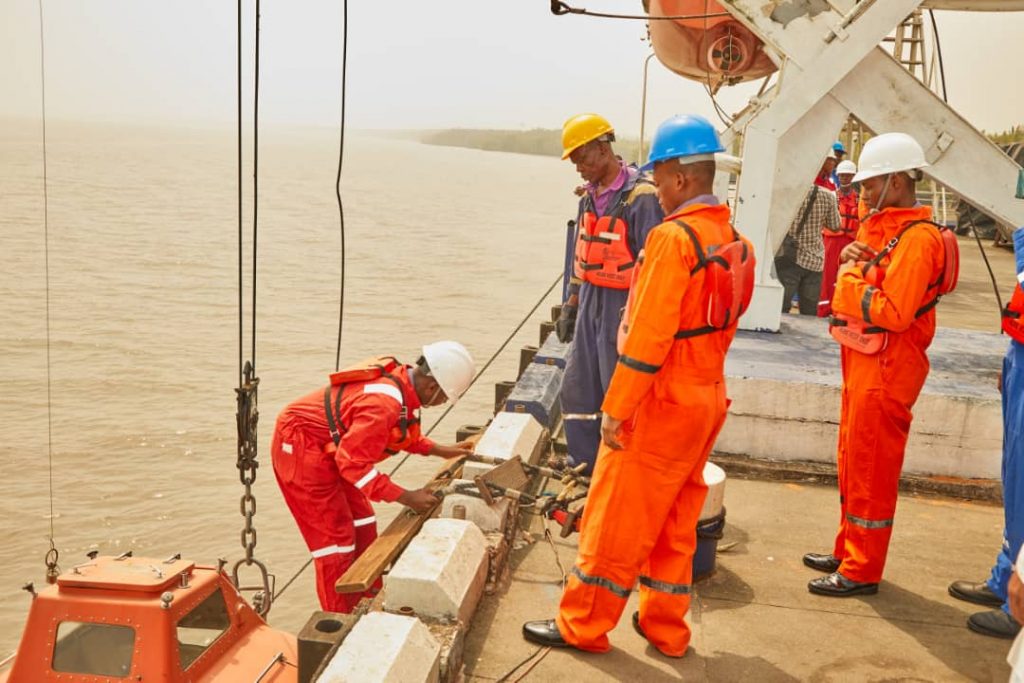
The Rector expressed further confidence that with the continued supports of the Federal Ministry of Transportation and NIMASA, the Academy will sustain its current status as one of the very best Maritime Education and Training Institutions in the world, and even go higher.
During his interaction with the first batch of trainees in the Radar Navigation, Radar-Plotting and Use of ARPA (RNRPA), Coomodore Effedua expressed his happiness with the Academy’s commencement of Simulator-based Courses using the most modern Simulators in the world with the approval of NIMASA. He reminded the participants that the Academy with NIMASA’s approval now has on offer, twelve (12) simulator-based courses for the training of seafarers and their professional development.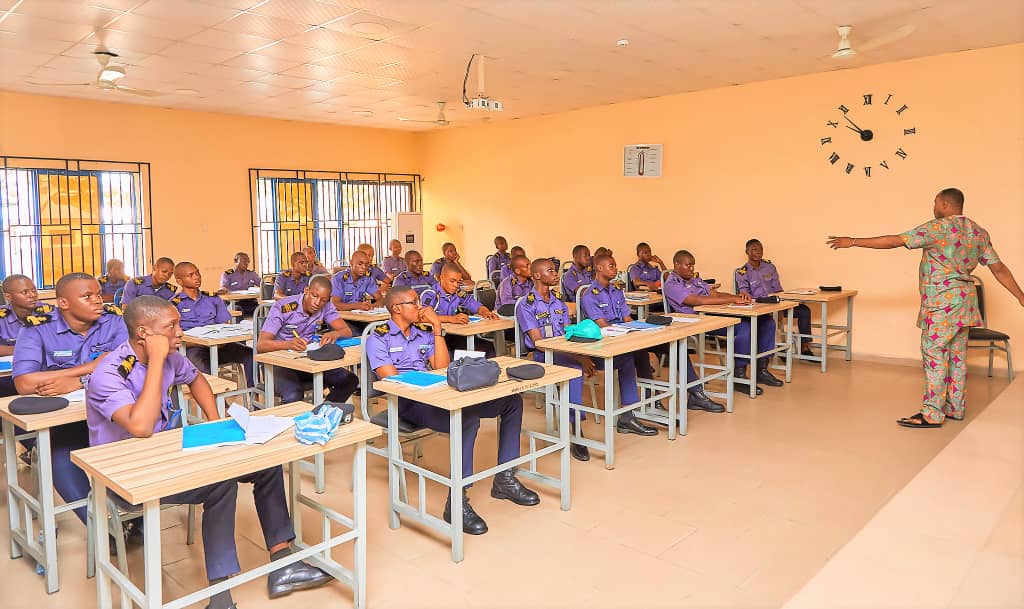

He noted that significant foreign exchange would be saved by the country through the availability of the simulator-based courses in the Academy in view of its very considerate fees. Hitherto, Nigerians needed huge foreign exchange to undertake these same courses abroad at very high costs.
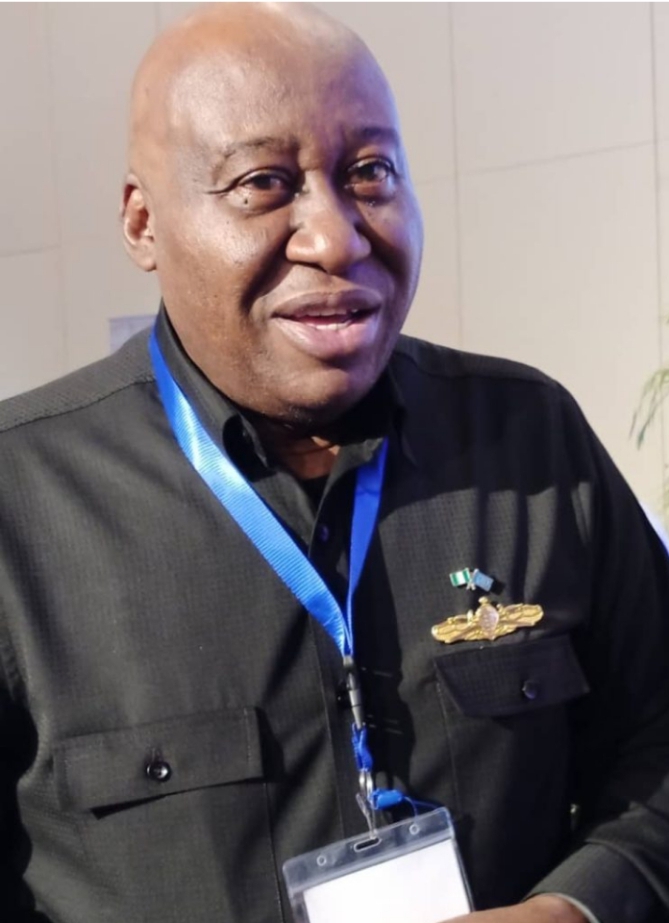
Rector, Cdre Effedua
He said, “Today is yet another memorable day for us at the Academy, because we have graduated the first set of students from our newly developed simulator- based courses. I am highly appreciative of the roles played by the Federal Ministry of Transportation and the management of the Nigeria Maritime Administration and Safety Agency towards the realisation of this Academy’s aspirations.
“This feat, though it was not an easy one, would not have been achieved without their unflinching supports”, he stated.
With the acquisition of high quality Simulators, the Academy now offers the following twelve Courses: Ship Simulator & Bridge Teamwork (SSBT); Global Maritime Distress and Safety System (GMDSS) General Operators Certificate (GOC) Course; Electronic Chart Display and Information System (ECDIS); and Radar Navigation, Radar Plotting and Use of ARPA (RNRPA).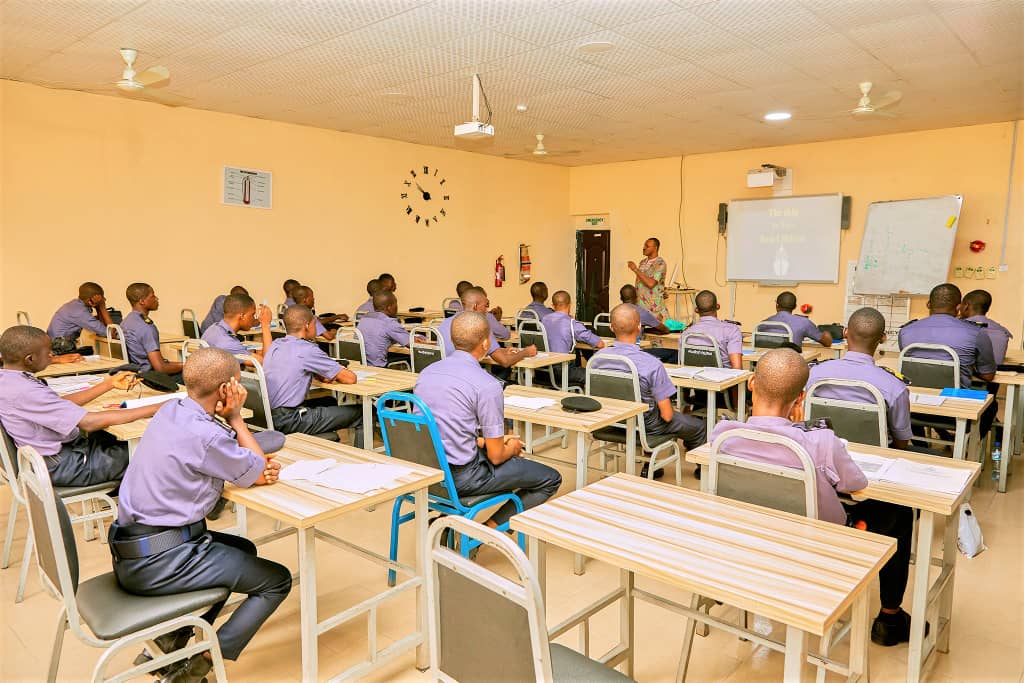
Others are Liquid Cargo & Ballast Handling Simulator (LCBHS); Bridge Watch-Keeping Preparatory Course (BWPC); Engine Room Simulator (Operational Level) Course (ERSOL); Engine Room Simulator (Management Level) Course (ERSML); High Voltage Course (HV); Auxiliary Engine Familiarization Course (AEFC); Boiler Familiarization Course (BFC) and Engine Room Watchkeeping Preparatory Course (ERWPC); and of course, STCW.
Pinnacle Time reports that the Academy’s Simulators are the latest in the world of simulation, not generic, but custom made to meet the current training needs in the nation’s maritime industry. The Multi-functional Classroom Simulator has eight Simulators embedded in one and has the capacity to hold different Courses at different times for both Engine and Deck students; and can accommodate up to thirty trainees at a time.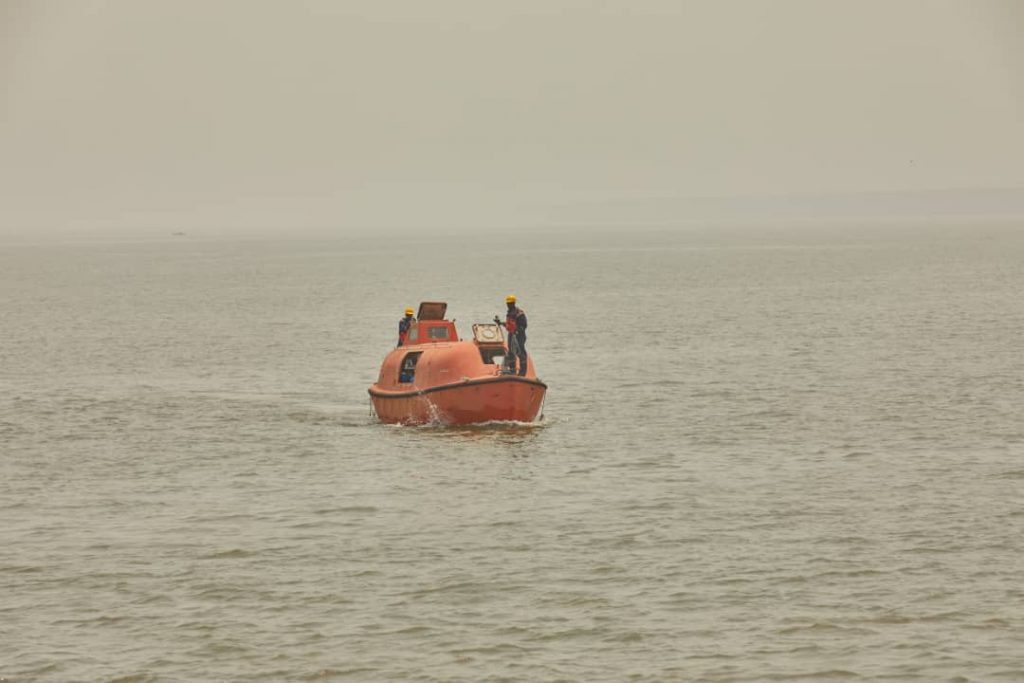
With the Full Mission Engine and Full Mission Deck Simulators, real life Engine Room and Deck situations can be simulated to give trainees real life sea experiences. While the Full Mission Deck Simulator can simulate any type of vessel including Warship, Tanker vessels- LNG, LPG Oil Tankers, the Full Mission Engine can simulate the movement of various engine parts and everything that goes on in a real engine room situation including engine room watch keeping, monitoring of lubrication oil and moving parts of the engine.
Another type of Simulator owned by this great citadel of learning is the Ocular Vision Simulator which when worn on the head launches the trainee into a virtual engine room where they can operate functions like operating of valves, switching on and off machineries within the engine of a ship.
Established in 1977 and formerly known as Nigeria Nautical College, it was originally designed as an integrated institution for the education and training of shipboard officers, ratings and shore-based management personnel.
The scope of the college was later upgraded by the promulgation of Decree No. 16 of 1988 with a statutory mandate to train all levels and categories of personnel required for the effective and efficient operation of all industry requirements.

























